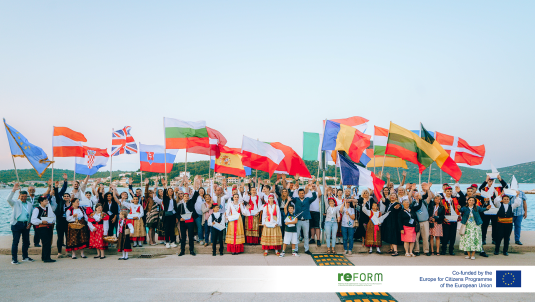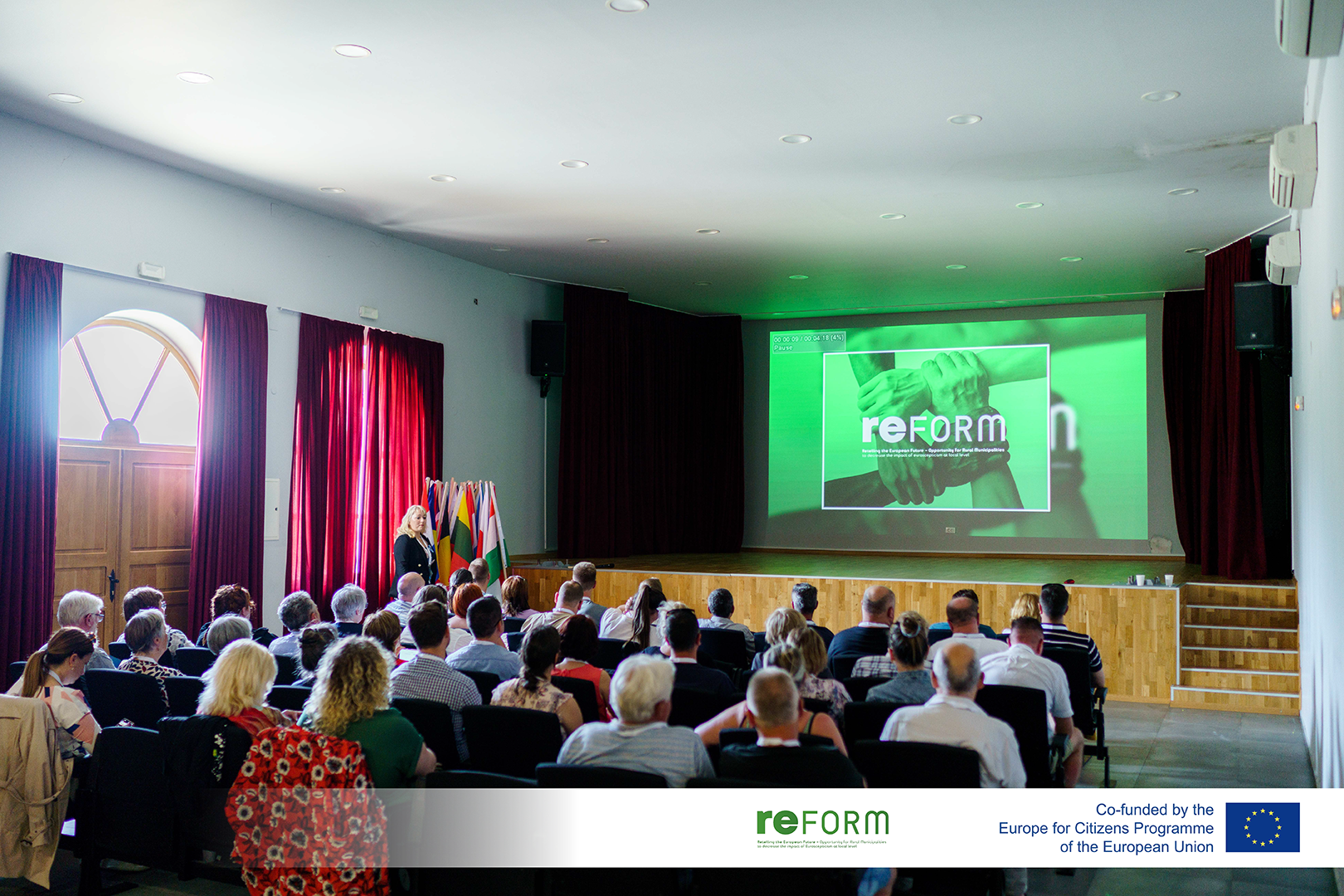
This Network of Towns project gave us the opportunity to bring together 27 rural municipalities from all parts of the European Union sharing the same concerns about the rise of Euroscepticism among inhabitants at both institutional and civic levels.
REFORM is our answer to that problem. The title speaks for itself – reforms are needed to remain united and build a strong and improved EU for the future. The project aimed at decreasing the level of Euroscepticism at the local level, strengthening democratic engagement, encouraging volunteering, and helping in building the future European society.
Within two years participants gained knowledge on the institutions of the EU, its benefits, common values, history, and different cultures, but they learnt from each other and helped one another understand and tackle Euroscepticism.
The project was carried out in the form of a “university” believing that only education can aid in making
changes/reforms in the world.
We organised three Seminars (in The Netherlands, Hungary, and Latvia) with one third of the partners involved, where the participants challenged Europe’s current problems, two Summer Academies (in Croatia and Spain) and a Closing Conference (in Romania) with all the partners involved, where participants had the opportunity to share their experience and good practices about the main topics.
We kept in mind the concept of cost efficiency to improve the quality of the whole project as all the participants stayed with host families instead of in hotels. They got a real insight into the locals´ lifestyle – this kind of interaction enabled participants to meet, learn from each other, get to know and respect each other, and each other’s way of living better. This action greatly contributed to the success of the project, it deepened and intensified the cooperation of towns, municipalities and individuals as well.
The total of 597 participants were directly involved and mobilised across Europe. The number of those indirectly involved was bigger than expected. More than 170 host families participated in 6 meetings providing housing to participants meaning that more than 2200 Europeans were indirectly involved.

For more information, please click on the pdf below.
| Attachment | Size |
|---|---|
Document
|
209.21 KB |


